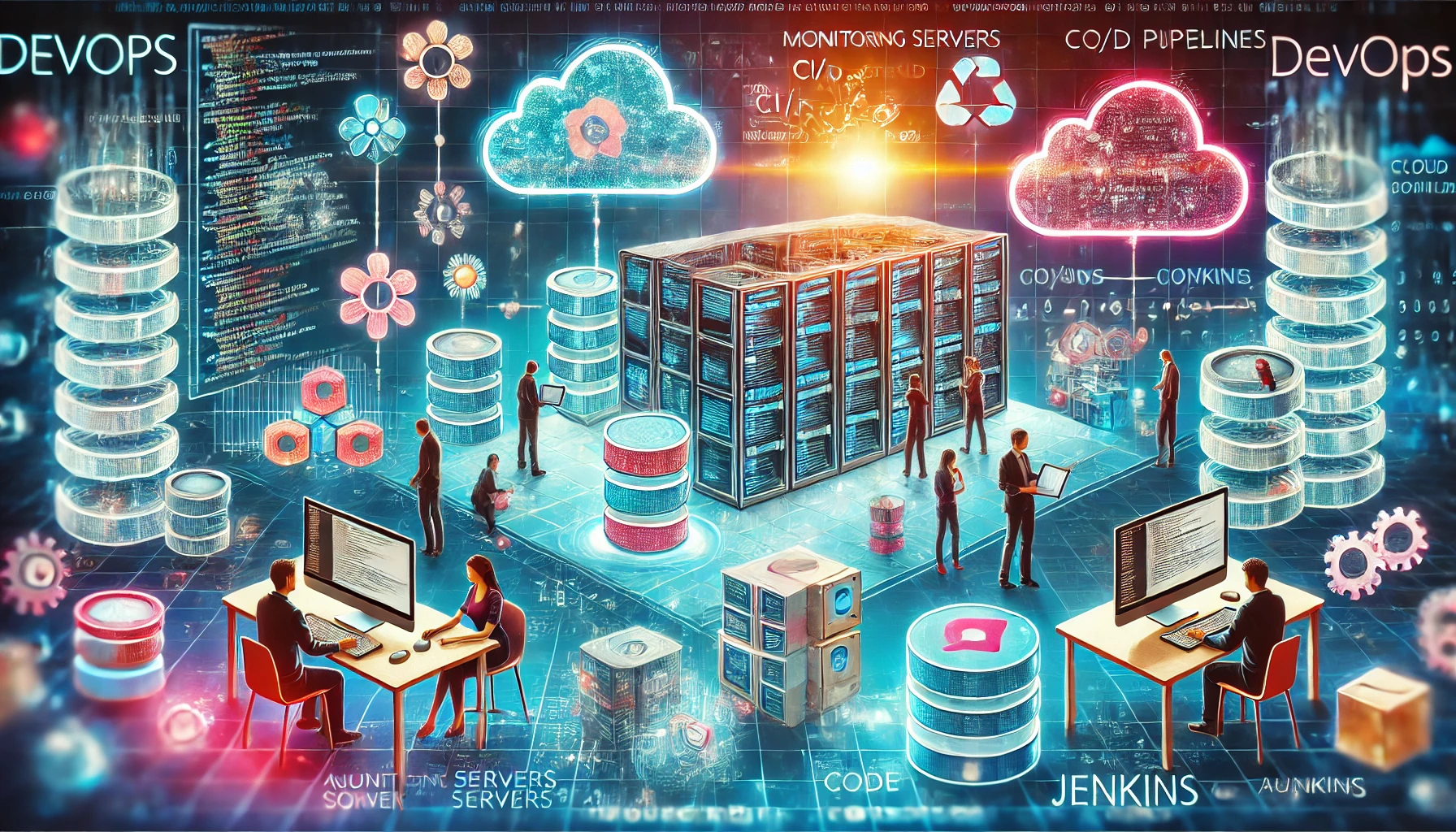
DevOps 101: A Beginner’s Roadmap to Mastering DevOps
DevOps has become a crucial discipline in the software development industry, helping teams achieve faster, more efficient, and collaborative workflows. For beginners interested in diving into DevOps, understanding its core concepts and creating a learning roadmap is essential to mastering the field. Here’s a detailed guide to help you get started.
1. Understanding DevOps: The Basics
DevOps is a blend of “Development” and “Operations,” designed to bridge the gap between software development and IT operations. The goal of DevOps is to improve collaboration, automate processes, and ensure continuous integration and delivery (CI/CD) in the software lifecycle. DevOps emphasizes the “infrastructure as code” (IaC) approach, automation, and monitoring to streamline deployments and updates.
Key Concepts:
- Collaboration: Breaking down silos between development and operations teams.
- Automation: Automating repetitive tasks such as testing, deployment, and monitoring.
- Continuous Integration/Continuous Delivery (CI/CD): Ensuring that code changes are automatically tested and delivered.
- Infrastructure as Code (IaC): Managing infrastructure using code-based configurations.
2. Setting Up Your Learning Path: Where to Start
Step 1: Learn Linux/Unix Fundamentals. DevOps professionals often work in environments based on Linux or Unix. Familiarize yourself with the command line, file systems, process management, and basic shell scripting.
Step 2: Master Version Control Systems (VCS), like Git. Git is integral to DevOps as it helps teams manage source code, track changes, and collaborate on development.
Step 3: Understand the basics of networking and protocols. Knowing how data moves across networks and understanding common protocols (HTTP, FTP, SSH) is key to managing infrastructure in DevOps.
Step 4: Learn Scripting and Automation. Pick up scripting languages like Python, Bash, or PowerShell, which are used to automate tasks, manage infrastructure, and set up pipelines.
3. Tools of the Trade: Essential DevOps Tools
Step 5: Get hands-on with DevOps tools, which are categorized into various domains:
- CI/CD Tools: Jenkins, GitLab CI, Travis CI help in automating testing and deployments.
- Containerization: Docker is a must-learn tool for packaging applications and their dependencies.
- Orchestration: Kubernetes manages and automates the deployment of containerized applications.
- Configuration Management: Tools like Ansible, Puppet, and Chef automate server configurations and software management.
- Monitoring: Monitoring tools like Prometheus, Grafana, and Nagios ensure that your infrastructure and applications are running optimally.
- Cloud Providers: Familiarize yourself with cloud platforms like AWS, Azure, or Google Cloud, which are critical to DevOps workflows.
4. Implementing Continuous Integration and Continuous Delivery
Step 6: Learn the principles and workflows of CI/CD, which are foundational to DevOps. CI/CD allows for the seamless integration of code changes and automated testing, reducing the time between code submission and production deployment.
- CI: Continuous Integration means integrating code into a shared repository several times a day, allowing for early detection of issues.
- CD: Continuous Delivery automates the release process, ensuring that code can be deployed at any time.
5. Practicing Infrastructure as Code (IaC)
Step 7: Embrace Infrastructure as Code (IaC). Tools like Terraform and AWS CloudFormation allow DevOps professionals to define infrastructure (servers, storage, networking) using code, enabling easy scaling, versioning, and reproducibility.
6. Building a Learning Environment
To truly grasp DevOps, create a test environment to practice and experiment with tools and automation. Start by setting up:
- A Linux virtual machine (VM) to practice system administration.
- A Git repository to manage your code and configuration files.
- A simple Jenkins pipeline for CI/CD.
- Docker containers to deploy simple applications.
7. Soft Skills and Collaboration
In DevOps, technical skills alone won’t make you successful. Collaboration, communication, and problem-solving skills are essential for fostering a DevOps culture. Work on improving your ability to work across different teams, providing feedback, and addressing challenges in a collaborative manner.
8. Keep Learning: Continuous Growth in DevOps
The field of DevOps is ever-evolving, with new tools, methodologies, and best practices emerging regularly. It’s important to stay updated by:
- Following blogs, podcasts, and forums dedicated to DevOps.
- Attending DevOps conferences and webinars.
- Earning certifications from AWS, Azure, or other cloud providers to validate your skills.



